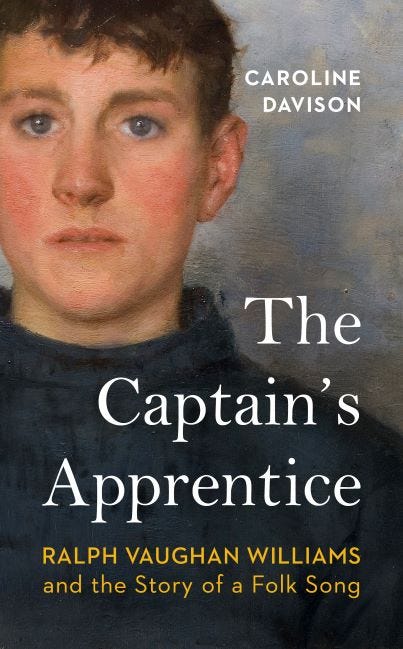Vaughan Williams’s Journey into Folk: 23 July 1904
‘A Brisk Young Farmer’. Thomas Bowes, Westerdale Yorkshire
A woman has been abandoned by her lover for another woman who has more money. She wishes that her baby was born but that she were dead. In most versions she asks for her grave to be dug and marked with a gravestone that declares she died for love.
After his trip out to Robin Hood’s bay, Vaughan Williams returned to the Westerdale area, where he stayed at North End Farm, Danby. On this day he finished two settings of Walt Whitman poems, ‘The Last Invocation’ and ‘The Love-song of the Birds’, which he called ‘Two Vocal Duets’ - but he still found time to revisit The Duncombe Arms [see 13 July 1904]. In a letter to his friend and cousin Ralph Wedgwood earlier that month he had reported that he needed to be back in London on July 24th because he was ‘examining a girls [sic] school in music on that day’. He must have had great faith in the railway system to get him back in time.
In the pub he heard Thomas Bowes sing ‘The Brisk Young Farmer’. He gave no information about Mr Bowes in his notes, but in the census of 1911, he is described as a ‘forman [sic] roadman’, though he had previously been a miller. In 1904 he was about 47 – so younger than the majority of singers from whom Vaughan Williams collected – and was married to Abigail. The couple had ten children together.
Mr Bowes sang three songs with a farmer theme: ‘The Farmer’s Daughter’ (also known as ‘The Banks of Sweet Dundee’); ‘The Farmer’s Boy’ (see 18 April 1904) and ‘A Brisk Young Farmer’. Vaughan Williams notes that the melody for ‘The Farmer’s Daughter’ is a ‘good [underlined] version’ of ‘Sweet Dundee’. The tune sounds like a very close cousin to the version of ‘Young William’ sung by Willy Knaggs in the same pub only ten days previously (13 July 1904). Both of these share similarities with the melody of ‘William and Phillis’ heard on 14 March 1904 in London, which Frank Kidson identified as another variant of ‘The Banks of Sweet Dundee’ air – the tune was clearly popular and widespread at the time. Instead of singing it again I’ve chosen another of Bowes’s songs, ‘A Brisk Young Farmer’. This is a version of ‘Died for Love’, a song which Vaughan Williams had previously collected at East Horndon in April, although the mournful tune here feels more appropriate for its subject. Vaughan Williams noted that it had ‘verses as usual’ which, in the context of multiple versions of the lyrics for this song, is a bit vague [see entry for 23 April 1904].
When he was commissioned to edit the new English Hymnal later in 1904 [see entry for 25 December 1903], Vaughan Williams immediately tapped into the rich resource of tunes he had collected during the previous months. This melody, renamed ‘Danby’ after the Yorkshire village where he stayed, was matched with Longfellow’s words ‘Tis winter now; the fallen snow has left the heavens all coldly clear; through leafless boughs the sharp winds blow, and all the earth lies dead and drear’. For some congregations in rural parish churches, it must have seemed strange to hear the old melody in its new setting.
For me, something about the way the musical phrasing matches the love, exhaustion, and bitterness in the words makes this song particularly moving.
Vaughan Williams Memorial Library link: https://www.vwml.org/record/RVW2/3/11
Roud No.60
Next post: 10 August




